
Thursday, October 9, 2008
By Muchena Zigomo
For those seeking to redistribute South Africa's rich farmland among landless, poor blacks, there is an uncomfortably close reminder of the dangers of getting this sensitive task wrong: Zimbabwe.
More than a decade after the end of apartheid, poor blacks in South Africa are still waiting for farms promised to them by the ruling African National Congress (ANC), which sees land redistribution as a cornerstone of black majority rule.
Farmers' groups say the delays are slowing investment in agriculture, stunting the sector's growth and hampering efforts to improve the lives of poor blacks, millions of whom still live in grim townships lacking basic services.
"It's a big issue, very serious, in other countries people have even died over these issues," said Motsepe Matlala, president of the National African Farmers' Union.
In Zimbabwe, about a dozen white farmers were shot dead and many others were beaten as war veterans violently seized white-owned commercial farms in 2000 as part of President Robert Mugabe's policy of land redistribution.
Critics say this policy ruined farming as many of the landless blacks had little or no experience in agriculture.
South Africa's target is ambitious: to hand over 30 percent of commercial farmland to blacks by 2014. With just six years to go, only 4 percent has been redistributed.
In August, the government shelved a controversial land bill, which would have given authorities wider powers to seize white-owned farms, after civic and farmers' groups branded it unconstitutional and a threat to farm investment.
Since then, Africa's biggest economy has been rocked by a political earthquake. The ANC forced former president Thabo Mbeki to resign last month, replacing him with Kgalema Motlanthe, who is expected to step down after elections in April.
ANC leader Jacob Zuma is expected to win that vote, and some critics of the land bill fear it will be reintroduced when he takes office. Zuma has said land reform has so far failed to combat rural poverty or promote rural development.
Analysts say the powerful COSATU trade union federation, which is allied to the ANC and the South African Communist Party and has called for speedy land reforms, may have more influence with Zuma than with Mbeki.
The question of land ownership in Africa is ever more pertinent as the continent finds favour among foreign investors seeking to buy up relatively cheap land to answer a growing need for food and energy security.
Governments and large investment funds are scouring the continent from dusty Sudan in the north to Zambia, seeking agricultural projects for investment, although the global financial crisis may slow the flow of funds in the near-term.
STUMBLING BLOCKS
South Africa has about 13 million hectares of arable land, producing about $50 million of farm goods each year. About 9 percent of the workforce is employed in agriculture, and it contributes just over 2 percent to gross domestic product.
"Agriculture is key to South Africa's development and obviously there would be an urgent need to deal with all the issues that will put the sector onto a high growth scenario path," said John Purchase, chief executive of the Agricultural Business Chamber.
"That includes the land reform programme and the sector's strategic plan, among other issues."
The government has long said the programme to give land back to people dispossessed under apartheid will be done in an orderly, legal and transparent manner.
"We have not moved in the way that the injured parties, the blacks, would have wanted us to move," Matlala said. "But we do appreciate that those who own the land may not let go of it willingly."
Many white farmers fear the kind of violence seen in Zimbabwe, while government officials say redistribution is being held up by soaring land costs that make it expensive to buy land from white owners under willing-buyer, willing-seller deals.
They also accuse white farmers of deliberately inflating prices, while landowners blame bureaucratic shortcomings for the slow progress in redistribution.
A Department of Agriculture website projected it would cost 94 billion rand ($10.3 billion) to transfer 30 percent of the land by 2014.
"The exorbitant and forever increasing land prices in South Africa continue to be the biggest challenge and impediment for both land redistribution and restitution," said Thozi Gwanya, director-general in the department of land affairs.
The government says it has bought agricultural land at an average cost of 4,000 rand per hectare. "And that average is increasing rapidly," Gwanya said.
The average cost for land used to grow sugar cane is about 55,000 rand per hectare, macadamia about 60,000 rand per hectare and vineyards about 100,000 rand per hectare.
NO QUICK FIX
Lourie Bosman, president of farmers' umbrella group AgriSA says the government needs to be more "level-headed" in its approach to the land reform issue.
"They must take it easy," he said. "There is a political outcry about land, but there is no quick fix to this problem."
There have already been protests. Residents of a small community in Ventersdorp, in the North West province, marched in early October to protest the slow pace of resettlement.
The leaders of the demonstration threatened to invade a piece of land in the area if their grievances were not met.
AgriSA has urged the state to consider other options including focussing more on partnerships between emerging black farmers and the white commercial farmers. Some white farmers have already begun training a new generation of black farmers.
"Some of these people are getting back land which they lost more than 50 years ago. They haven't been farming for all that time and they will need help," Matlala, of the National African Farmers' Union said.
Some white farmers blame the government for the delays in redistribution, saying they will sell if the price is right.
"It's a lie to say farmers are delaying the process," Bosman said. "We have more land in the open market than the government can buy."
http://www.iht.com/articles/reuters/2008/10/09/africa/OUKWD-UK-AFRICA-LAND-SAFRICA.php
A Place in My Country
Ian Walthew
Farm Blogs
Ranch Blogs
Rural Blogs
Countryside Blogs
Smallholding Blogs
Urban Homesteading Blogs
Homesteading Blogs
Homestead Blogs
Allotment Blogs
Apiculture Blogs
Bee-keeping Blogs
Auvergne
Auvergnate
Auvergnat
Auvergnats
France
Rural France
Blogs about France
Paris / Montmartre/ Abbesses holiday / vacation furnished apartment rental







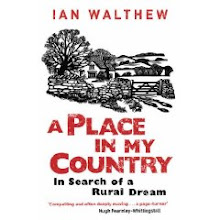


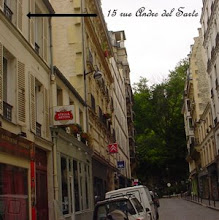
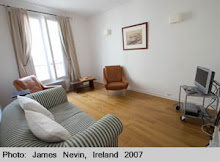

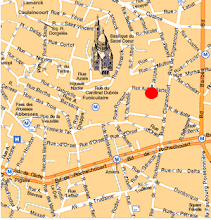

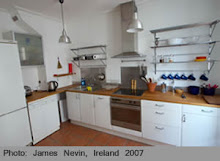
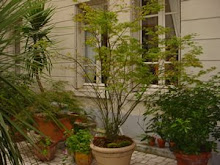
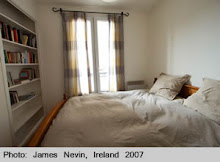



No comments:
Post a Comment